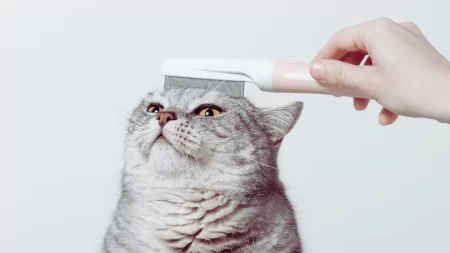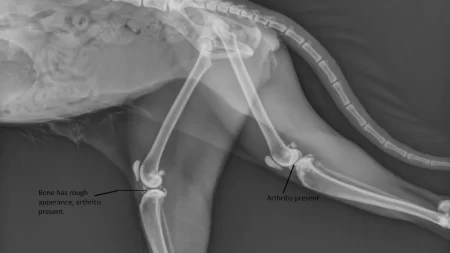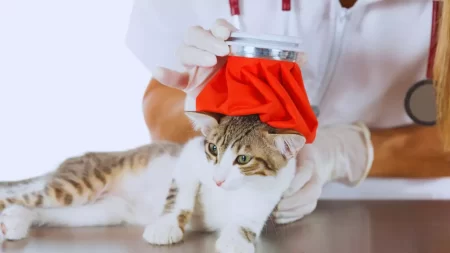Does your indoor kitty need safeguarding from roundworms? You may be astonished to discover that YES, even cats who remain indoors can be impacted. Discover more about roundworm dangers and how you can defend your cat. Get the facts now!
Cats and humans can both get roundworms. In cats, indoors or outdoors, it can be bad for their health. An indoor cat may be more vulnerable to parasites like roundworms because they don’t get the same environment as outdoor cats, which can help them avoid them.
It’s important to know what signs may mean your cat has roundworms so you can get treatment and keep them healthy:
What are Roundworms?
Roundworms (Toxocara spp.) are common parasites. They infect cats and other animals, as well as people. You can find them in soil, water, or sand. Eggs from infected animals, including cats, are deposited in these places.
Cats with roundworms often show signs like increased appetite, weight loss, and vomiting. You may also see roundworms in their feces or vomit.
Roundworms fall into two main types:
- Intestinal worms (Toxocara cati) live inside the intestines and cause health issues.
- Tissue-inhabiting worms (Spirocerca lupi) live within organs and tissues. Both types can be harmful if left untreated.
The infestation cycle starts when an adult worm lays thousands of eggs. These are expelled in the animal’s feces or vomit. They spread to soil, sandboxes, and more. If a cat is infected, the eggs hatch in its intestines. The larvae grow and become adults. Then, they start the cycle again. This means your pet and anyone who comes into contact with them is at risk.
Causes of Roundworms in Cats
Most roundworms don’t hurt humans. However, cats that stay indoors can be affected by some types. Toxocara cati is the most common roundworm found in cats and causes 95% of worm-related diseases in cats.
Roundworms can be transmitted through contaminated feces, soil, fleas, bugs, or an infected mother during pregnancy. To prevent infection in cats, keep their litter box clean, check their coat regularly, and visit the vet twice a year for a checkup and deworming if needed. To lower the risk of roundworm infection, make sure all openings are screened and check pet toys regularly.
Symptoms of Roundworm Infection in Cats
Roundworms are worms that can infect cats. These parasites often enter by eating an infected rodent. Or even insects like grasshoppers.
Symptoms of infection might include:
- Vomiting and diarrhea.
- Weight loss and a distended belly.
- Anemia in a severely infected cat.
- A change in stool color.
- In advanced infestations, you might even see adult worms in the cat’s stool.
Young cats can suffer stunted growth or development problems if roundworms are present. Other causes can lead to the same symptoms. So if your cat has any of these, it is important to talk to your vet for diagnosis and treatment options.
Prevention of Roundworms in Indoor Cats
Roundworms are parasites that can harm both indoor and outdoor cats. They require urgent medical attention. Indoor cats may be less likely to catch them, but they can still get infected if their environment has contaminated stool, or if they eat an animal carrying worms. To stop roundworms in your indoor cat, take these steps:
- Ask your vet before taking any kind of over-the-counter worming medications.
- Go to regular checkups with your vet and get stool tests as suggested.
- Keep the pet bedding clean and have a proper way of disposing of litter trays.
- Stop outdoor cats from coming near where your indoor cat lives.
- Feed your cat freshly prepared meals and avoid raw fish or wild rodents.
- Wash your hands after touching pets or any animal-related material.
Diagnosis and Treatment of Roundworms in Cats
Roundworms can be a problem for cats of all ages. Symptoms may include vomiting, diarrhea, coughing, weight loss, and the presence of small rice-like particles in feces or vomit. Your vet can do a fecal check to see if roundworms are present. Treatment typically involves medicine, pills, or injections. Kittens should be treated with caution until they are six months old.
Deworming may be necessary for cats exposed to wildlife. Fecal checks and caution should be taken for cats outdoors. Disposal of wild animal and raccoon feces, regular cleaning, and flea prevention products for indoor cats can help reduce the risk of roundworm infestation:
- Disposal of wild animal and raccoon feces
- Regular cleaning
- Flea prevention products for indoor cats
Potential Complications of Roundworm Infection
Roundworms in cats can cause serious health issues, especially in kittens. After eating larvae, the adult worms live in the intestine. Larvae may move around the body and cause damage to organs and tissues. Symptoms of roundworm infection may be a pot-bellied appearance, diarrhea, tiredness, and vomiting. Severe infection may cause anemia or other dangerous conditions.
Roundworms lay eggs which are passed in the pet’s stool. Humans, especially kids and pregnant women, can become infected if they do not wear gloves when dealing with feces. In humans, signs of roundworms may be an intestinal blockage or dysentery. Therefore, hygiene is important when handling cat feces if the pet has roundworms.
The vet may suggest routine deworming or a stool test to detect roundworms. This helps make sure the treatment will be effective and won’t have bad side effects by treating unnecessarily.
Conclusion
To sum up, even though indoor cats are less prone to getting roundworms or other parasites than outdoor cats, they can still be affected. Pet owners should make sure their cat is dewormed and vaccinated regularly for well-being. Additionally, the litter box should be disposed of carefully. Facility owners must inspect any new cats before admitting them, and maintain a strong flea-control plan.
In the end, protective measures should be taken by all cats, whether they are indoors or outdoors, to reduce the risk of parasites:
- Make sure cats are dewormed and vaccinated regularly.
- Dispose of the litter box carefully.
- Inspect any new cats before admitting them.
- Maintain a strong flea-control plan.




![Can Indoor Cats Get Roundworms? [Surprising Facts] can indoor cats get roundworms](https://justcatlover.com/wp-content/uploads/2023/02/can-indoor-cats-get-roundworms-1024x576.jpg)


